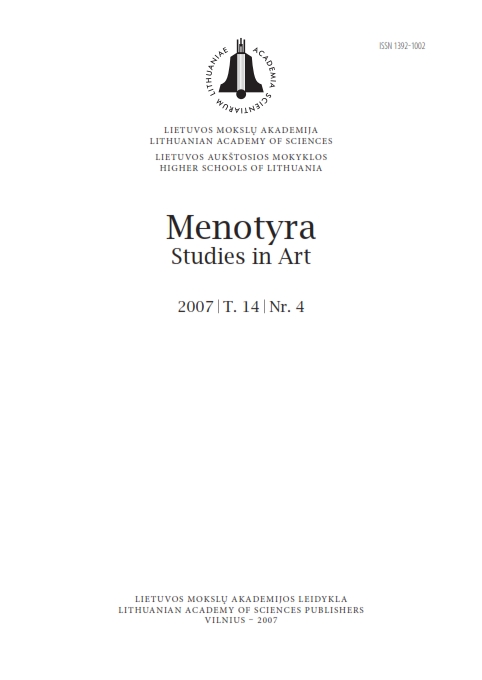Teatras ir cenzūra. Režisieriaus Jono Jurašo atvejis
Theater and censorship. The case of Director Jonas Jurašas
Author(s): Goda DapšytėSubject(s): Theatre, Dance, Performing Arts, Politics and society, History of Communism
Published by: Lietuvos mokslų akademijos leidykla
Summary/Abstract: Theater censorship is an issue that has not been individually and widely discussed yet. Particular cases of censorship have been looked into in essays on specific theater artists who worked during the Soviet era; however, there is still no study to examine the phenomenon of theater censorship as a whole. This publication begins to explore the relationship between theater and censorship during various periods of time in history and re-examines the most famous cases of censorship in Lithuanian theater – the demolition of director’s Jonas Jurašas’ works and its consequences. Starting with a brief overview of theater censorship history, the article goes on to mention examples of contemporary censorship in theater, followed by a discussion of a specific, chronologically bounded historical period of time that packed with prime examples of theater censorship in Lithuania – the period of Soviet occupation; eventually, censorship of specific theatrical works is analysed.The publication mentions Jonas Jurašas whose example shows that persistent censorship can force an artist to become directly involved in politics. In addition to the anti-Soviet ideas reflected in his plays, censorship can be identified as one of Jurašas’ success factors with the audience. Ironically, censorship had a positive and stimulating influence on this artist’s creative process.It follows that the effect of censorship on theater should not be evaluated unilaterally. In the majority of cases the effect was negative – during certain historical periods of time censorship impeded the development of theater, constrained the possibilities of theater artists to express themselves, so influencing the quality of their works, damaging entire generations of artists and destroying the fates of numerous individuals. Yet censorship, paradoxically, had a positive influence as well – it increased the resourcefulness of those who sought to bypass it, encouraging a wider variety of artistic search methods and bringing forth the formation of individual aesthetics (in Lithuanian theater – Aesop’s language).
Journal: Menotyra
- Issue Year: 14/2007
- Issue No: 4
- Page Range: 69-78
- Page Count: 10
- Language: Lithuanian

